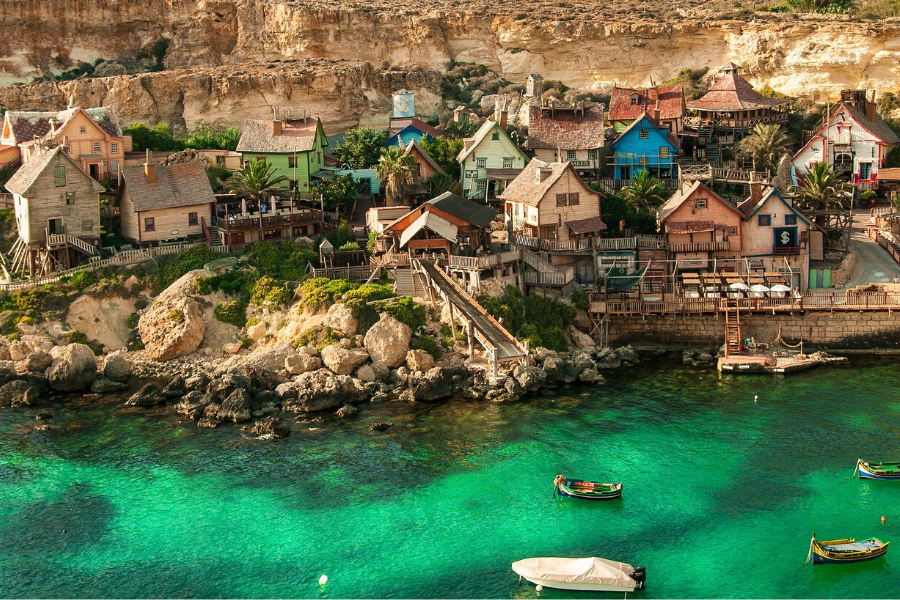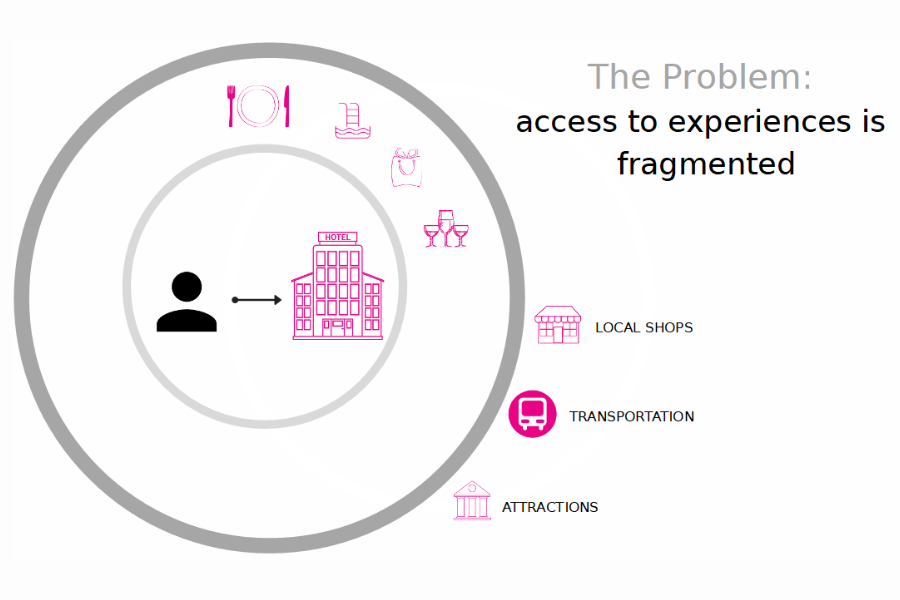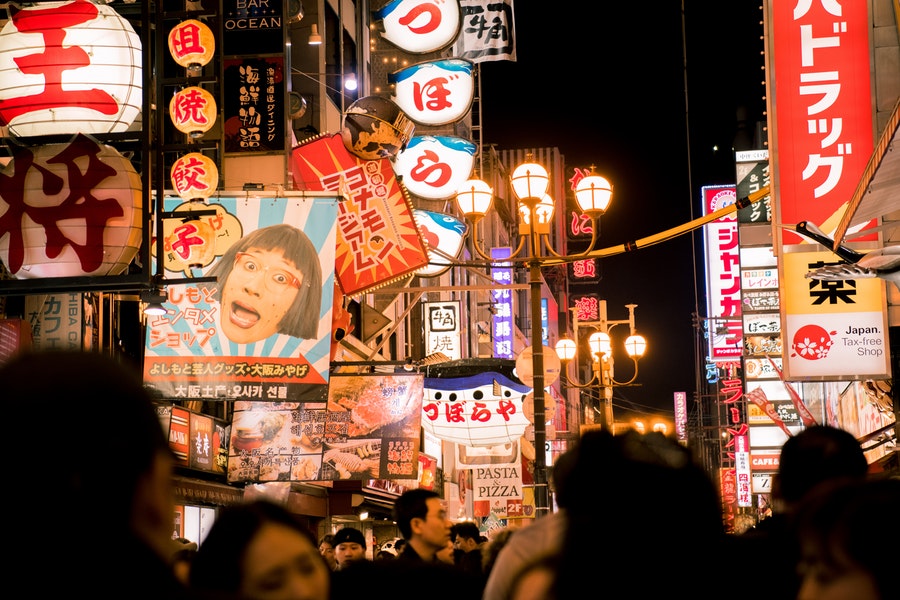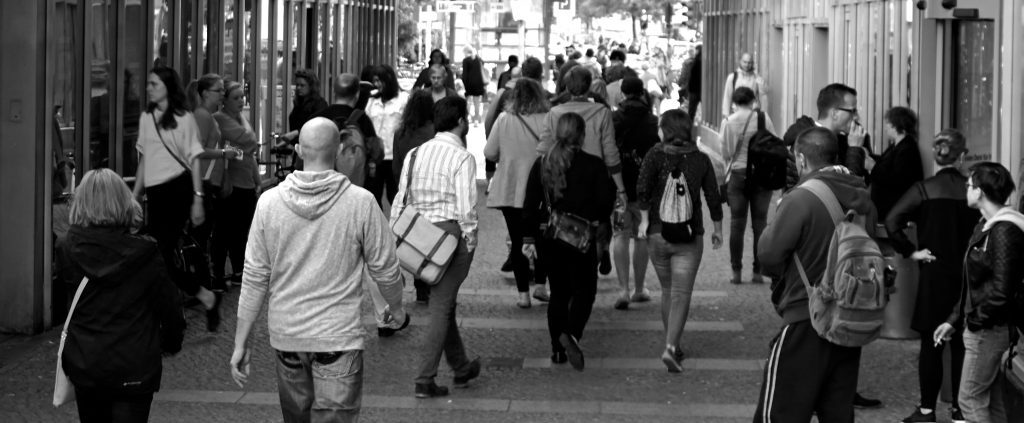The beginning of 2020 brought us the Madeira Startup Retreat, a wonderful program that supports startups that brings together startups that aim to use their technology for the Travel and Hospitality industry. It helped us better understand how our solution can help communities develop their own local economies.
But as I write these lines, the world is totally different from what it used to be just a few months ago. The coronavirus pandemic made governments impose total lockdowns on communities, a measure designed to keep us safe until these hard moments pass. All industries took a big hit, but Hospitality and Travel are probably the ones that suffer the most in these hard times. Travel bans and lockdowns transformed our once vibrant communities into “ghost cities”, making us understand that we shouldn’t take anything for granted.

The last few weeks gave me time to think of the importance of local communities and their role in the reconstruction of the global economy. And how Tourism can empower local economies. Because although we all suffer together, the power must come from within: individuals, small businesses, local communities. We are strong together, but firsts we must be strong as individuals.
The future of communities
The idea of local economies that are globally interconnected is not new, but today’s hard times force us to better understand the importance of each chain link in our interconnected world. And that the fall of one piece can create a chain reaction that will affect us all. While some communities are created around powerful manufacturing industries or financial centers, many of them are 100% dependent on the industry that took the biggest hit these days: Tourism.
Overall, 1 in 10 employees work in tourism, making it one of the biggest industries in the world. But for some communities, it means more than that, making it the only way that allows them to attract external funds. However, taking a deeper look at the Tourism Industry allows us to see the day-to-day challenges. Challenges that affect both the Tourism Industry and the community. Tackling these challenges could mean a stronger, financially independent community that has the power to attract more tourists and offer better experiences. The key members that create these experiences, which have the interest but also are required to work together.
Current main problems
We will take a look at how Hotel Chains, small businesses, and local authorities could better work together. But first I want to list some of the problems that affect the small communities and Tourism operators.
- Especially in developing countries, tourism inflates prices. Tourists afford to pay more for existing products and services, making it harder for locals to access them. In the long term, this makes the area lose its initial inhibitors and its cultural heritage, affecting tourism in the region.
- Most of the money leaves the community/country. Although tourists spend large amounts of money, a big percentage leaves the local economy within just a few transactions because of the lack of strong local businesses.
- Lack of data. Each stakeholder has access to part of the data (tourist information, purchasing habits, preferred experiences, etc) making it almost impossible for them to offer the experiences tourists crave for
- Fragmented experience for the tourists. Different currencies, different payment methods or divided registration processes can become daunting. Often enough, tourists choose to skip different activities because of the mentioned reasons, affecting both the local economy but also their own experience – a lose/lose situation.

Sustainable Tourism
At first, it may look that these problems affect just the local communities, not the powerful Hotel Chains that operate there. But a weak community will discourage people to visit a specific area, forcing the Tourism Operators to take a big hit as well. Distributing part of the money to locals is an investment that will help the area flourish, having an impact on all the mentioned stakeholders. And with millennial travelers valuing local experiences and pushing the trend to experiential traveling, any support offered to the local community becomes an investment into the industry itself.
At Oveit, we have developed an Economy as a Software solution, aiming to help communities to create their local economy. Having such an ecosystem means that the money tourists spend on their vacations stays within the community that works to create these wonderful experiences. It’s a way of making sure that the wealth is distributed amongst those that put the hard work in creating beautiful memories. It’s a way of making Tourism (more and more) sustainable.
Local Economies. From concept to implementation
If you think the theory sounds good you will be happy to find out that the implementation is easier than you would imagine. Our solution allows the main stakeholder of the ecosystem (let’s put the Hotel in charge) to easily onboard external vendors and experience creators into this local payment system.
The integration with the PMS means no complicated onboarding is required. Guests from the hotel can use their room key ( or even their mobile phones or customized NFC wearables) to pay or claim different benefits. It can be used to open the room, access the spa, pay at the hotel’s restaurant or gift shop. But by onboarding local vendors it also means that they can use it to pay at a local shop or to access the local museum. By partnering up with the local entrepreneurs and authorities, the Hotel can encourage its guests to spend their money within businesses that add value to the region. It can create better experiences for the tourist, allowing them to pay using the same NFC wristband that they use to open their rooms.
Tourists will no longer need to carry cash around. So often, small local businesses do not afford to onboard the existing banking system, making it harder for them to sell their services and products to foreigners. Tourists can use the same wearable for all the activities they want to join – a simple thing as an NFC wristband can become their room key, wallet, access to the museum or even transportation pass.

Photo by Satoshi Hirayama from Pexels
Data becomes available live – purchasing habits and experiences are all processed through the system, allowing involved parties to better understand the customer journey. And, of course, to use this information to better understand who their customers are and how they could improve their stay.
Local authorities can support the industry by making sure that part of the money generated by the Tourism industry is spent within it. For example, for spendings within local businesses users can receive extra Perks – free entrance to local attractions, discounts, and many more.
Conclusions
We live in an era where technology shows us the power of decentralization, empowering individuals and communities. Looking at today’s biggest companies like Airbnb and Uber we see the effect of giving power to individuals and small communities. Not only a better wealth distribution but also improved services for the consumer. And better experiences mean better client retention.
Leading Tourism companies have the opportunity to use their resources in creating powerful economies around their businesses. To empower the communities that empower the tourism industry.
